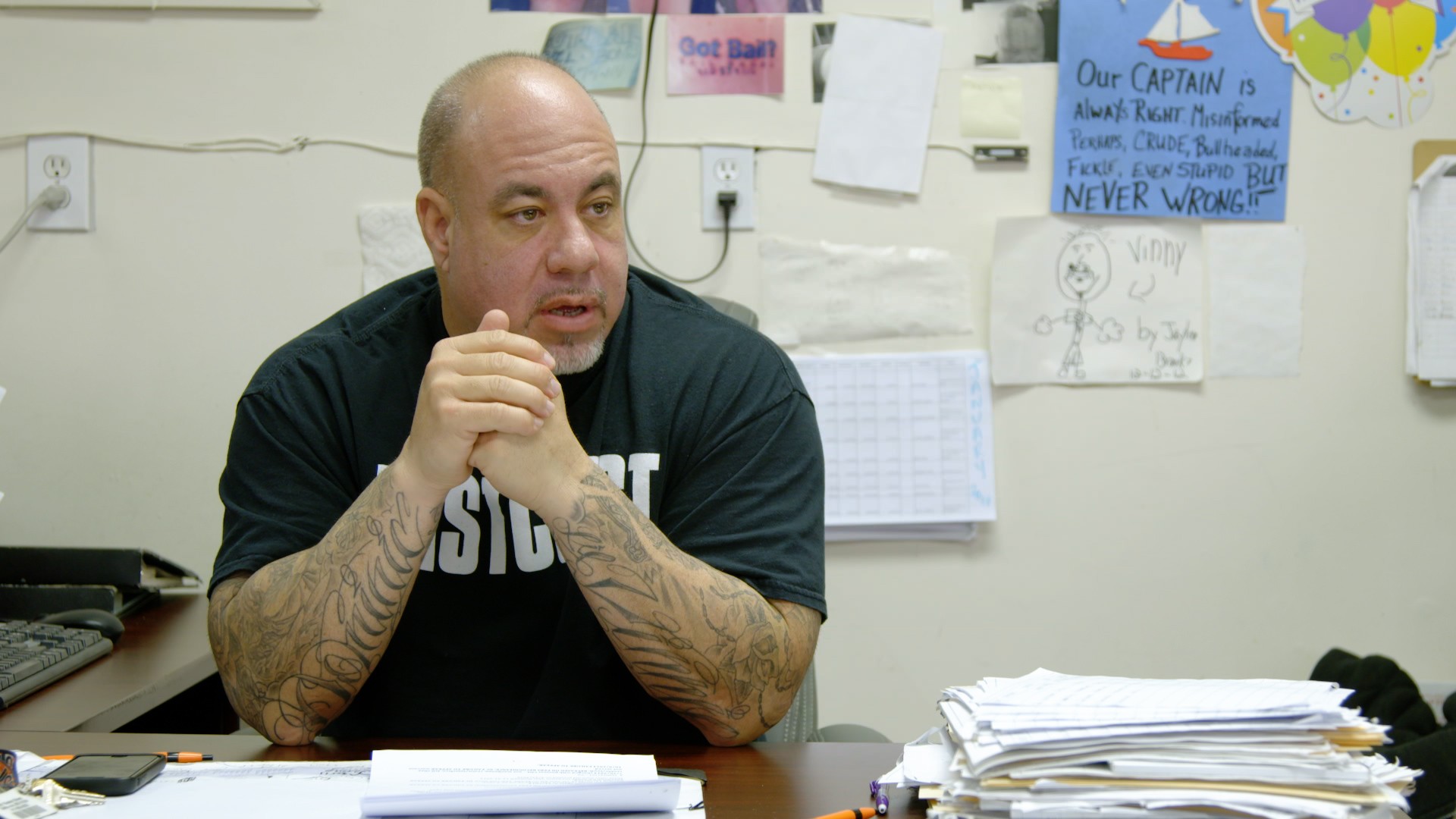Killing Eve is the newest great cat and mouse detective drama from BBC America. The show stars Sandra Oh as Eve Polastri, a desk job-trapped MI5 employee who is recruited to try and catch Vilanelle, a psychopathic assassin played by Jodie Comer.It premiered back in April, and the finale will air this Sunday. The show has received thunderous critical approval, and has already been renewed for a second season, (that will hopefully consist of more than the eight episodes this season got).The BBC is no stranger to detective dramas that center around a hero and a villain and the degree to which their pathologies are similar and dissimilar. Indeed, the heart of Killing Eve lies in the recurring theme that Eve and Villanelle aren’t quite opposites. The show is incredibly good—more than good, actually, the word I would use is “satiating.” It satisfies a desire for something I didn’t know I needed, specifically because I had never seen it on screen before.Where Killing Eve really makes its killing is in the way it subverts so many of the expectations of the detective drama format. This is instantly apparent in the show’s primary cast, the majority of whom are women. This casting decision was made by Killing Eve’s writer and producer, Phoebe Waller-Bridge, who previously created and starred in Fleabag. This cast allows Waller-Bridge to center the drama around the many subtle violations that women endure on a daily basis. The women of Killing Eve are quite literally superior in every way imaginable, and yet they still have to navigate constant minimization from their male peers. The majority of these instances of misogyny are casual to the point of feeling unavoidable. It’s only as we see Sandra Oh and Jodie Comer perform their outrage, that we come to realize just how maddeningly we have normalized such behavior.When Eve is promoted, in the first episode, her white male ex-boss is, at first, utterly incapable of accepting her as a superior. By the end of the episode, despite his assholery, we learn this man is to be one of Eve’s closest allies. Later in the season, one of Villanelle’s new handlers repeatedly demands that she sit (and more largely, that she become placidly obedient). Another female assassin facetiously gets called a pumpkin by her male counterpart. Many of the show’s shitty men end up getting killed the hands of women. Normally, we see shows depicting the exact opposite.
Killing Eve is also unapologetically queer. Villanelle doesn’t seem picky about her bedmates, but her romantic obsessions are exclusive to women. Villanelle’s bisexuality is brazenly performed on screen, in a way that doesn’t feel catered to—or even aware of, really—the male gaze. Eve Polastri’s sexual fluidity is in constant question. Mid-season, Eve describes Villanelle to a sketch artist with an attendance verging on lust and adoration. In so many ways, Killing Eve forces us to contemplate the degree to which every obsession holds within it a kernel of romantic desire, and the degree to which we regularly police our own sexuality. It is absolutely thrilling.As our lead, Eve Polastri differs wildly from typical detective drama tropes in a number of ways. First, she’s a woman. Second, she’s an Asian American woman. My initial interest in the show actually came from reading E. Alex Jung’s fantastic interview with Sandra Oh, where he addressed these disparities head on. The whole interview can be found on Vulture, but this bit really stuck out to me:One thing I will share with you—when I got the script for Killing Eve, I remember I was walking around in Brooklyn and I was on my phone with my agent, Nancy. I was quickly scrolling down the script, and I can’t really tell you what I was looking for. So I’m like, “So Nancy, I don’t understand, what’s the part?” And Nancy goes “Sweetheart, it’s Eve, it’s Eve.” In that moment, I did not assume the offer was for Eve. I think about that moment a lot. Of just going, how deep have I internalized this? [So] many years of being seen [a certain way], it deeply, deeply, deeply affects us. It’s like, how does racism define your work? Oh my goodness, I didn’t even assume when being offered something that I would be one of the central storytellers. Why? And this is me talking, right? After being told to see things a certain way for decades, you realize, “Oh my god! They brainwashed me!” I was brainwashed! So that was a revelation to me.
It is only fitting then that Sandra Oh also portray an agent whose pathology vastly differs from the prototypical detective drama lead, effectively making Eve Polastri completely different from all of her predecessors. Unlike so many detective drama antiheroes whose main complication is their inability to connect to their peers emotionally, Eve’s primary character trait is her intense sense of intuition. Rather than watching a descent into brokenness as a result of a fundamental inability to relate to other people, we get to witness a descent into near madness as a result of an impossibly overwhelming obsession with a single person.It is also worth mentioning: Jodie Comer’s portrayal of Villanelle is absolutely revelatory. Her absolute psychopathy is one of the few certainties of the twisting series—she kills with electrifying power, at one point lethally biting into an assailants neck. Despite this, we still manage to root for and empathize with her, thanks to Comer’s incredible performance and Waller-Bridge’s pitch perfect writing.I will leave you with this final sell. In addition to being incredibly thrilling, Killing Eve is written with a specifically unhinged sense of dark humor, marked by the constant impulse to undercut some its most dramatic moments with absurdity. It is the type of show that has the audacity to smash cut from a fairly serious discussion of castration to a close up of sausages in a frying pan. This very specific attention to detail is reflected in every bit of the show, from the sharp dialogue to the wonderful cinematography. In the early episodes, Eve is shot in a near grayscale, marked by dowdy clothing and a boxy environment. Villanelle is given vivid colors, flowers in bloom, Parisian architecture, and a fabulous wardrobe—including a vivid green Miu Miu jacket, and a pink tulle Molly Goddard dress. Kudos to the costuming team.This is to say: everything about Killing Eve is as sharp as its heroines. I will be re-bingeing in time for the finale. You should join.Sign up for our newsletter to get the best of VICE delivered to your inbox daily.Follow Nicole Clark on Twitter. 
